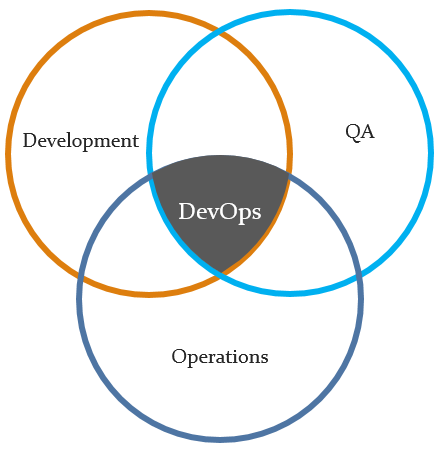In the rapidly evolving landscape of technology, the integration of DevOps solutions has emerged as a catalyst for driving innovative developments. DevOps, a portmanteau of Development and Operations, represents a cultural and philosophical shift in how software development and IT operations collaborate throughout the entire service lifecycle. This approach emphasizes automation, collaboration, and integration between software developers and IT operations professionals. By breaking down silos and fostering a culture of collaboration, DevOps enables organizations to deliver high-quality software at a faster pace, meeting the demands of today’s dynamic market. One of the key aspects of DevOps is its emphasis on automation. Automation streamlines repetitive tasks, such as code integration, testing, deployment, and infrastructure provisioning. Through automation, developers can focus more on writing code and creating innovative solutions rather than getting bogged down by manual processes. Continuous Integration CI and Continuous Deployment CD pipelines automate the build, test, and deployment processes, ensuring that changes are rapidly integrated into production while maintaining quality. This not only accelerates time-to-market but also enhances overall system reliability and stability.

Moreover, DevOps encourages a shift-left mentality, where testing is integrated earlier in the development cycle. This proactive approach helps identify and rectify issues sooner, reducing the likelihood of costly defects slipping into production. Automated testing frameworks enable developers to perform comprehensive unit tests, integration tests, and acceptance tests throughout the development process, leading to more robust and resilient software solutions. Another crucial aspect of DevOps is its focus on collaboration and communication. By fostering cross-functional teams and encouraging open communication channels, DevOps breaks down traditional barriers between development, operations, and other stakeholders. Collaboration tools and practices, such as chatbots, shared dashboards, and agile methodologies, facilitate real-time collaboration and visibility into the development pipeline. This collaborative environment fosters innovation by encouraging knowledge sharing, brainstorming, and rapid feedback loops, allowing teams to iterate and improve continuously. Furthermore, DevOps promotes infrastructure as code IaC principles, where infrastructure configuration is managed through code and version-controlled alongside application code.
Infrastructure automation tools, such as Terraform and Ansible, enable organizations to provision and manage infrastructure resources programmatically, leading to greater consistency, scalability, and reliability. This approach also facilitates the adoption of cloud-native technologies and Microservices architectures, allowing organizations to leverage the scalability and flexibility of cloud platforms while minimizing operational overhead. The adoption of DevOps solutions is driving technological advancements across various domains, including cloud computing, artificial intelligence, and Internet of Things IoT. DevOps practices enable organizations to embrace emerging technologies more rapidly and effectively by providing the agility and flexibility needed to experiment, iterate, and scale. For example, in the realm of AI and machine learning and view https://quema.co/contact, DevOps practices streamline the deployment and monitoring of AI models, enabling organizations to deliver intelligent applications to market faster. Similarly, in the IoT space, DevOps facilitates the deployment and management of connected devices and sensor networks, enabling organizations to harness the power of IoT data for actionable insights and innovation. In conclusion, DevOps solutions are playing a pivotal role in driving technological advancements by fostering automation, collaboration, and innovation.